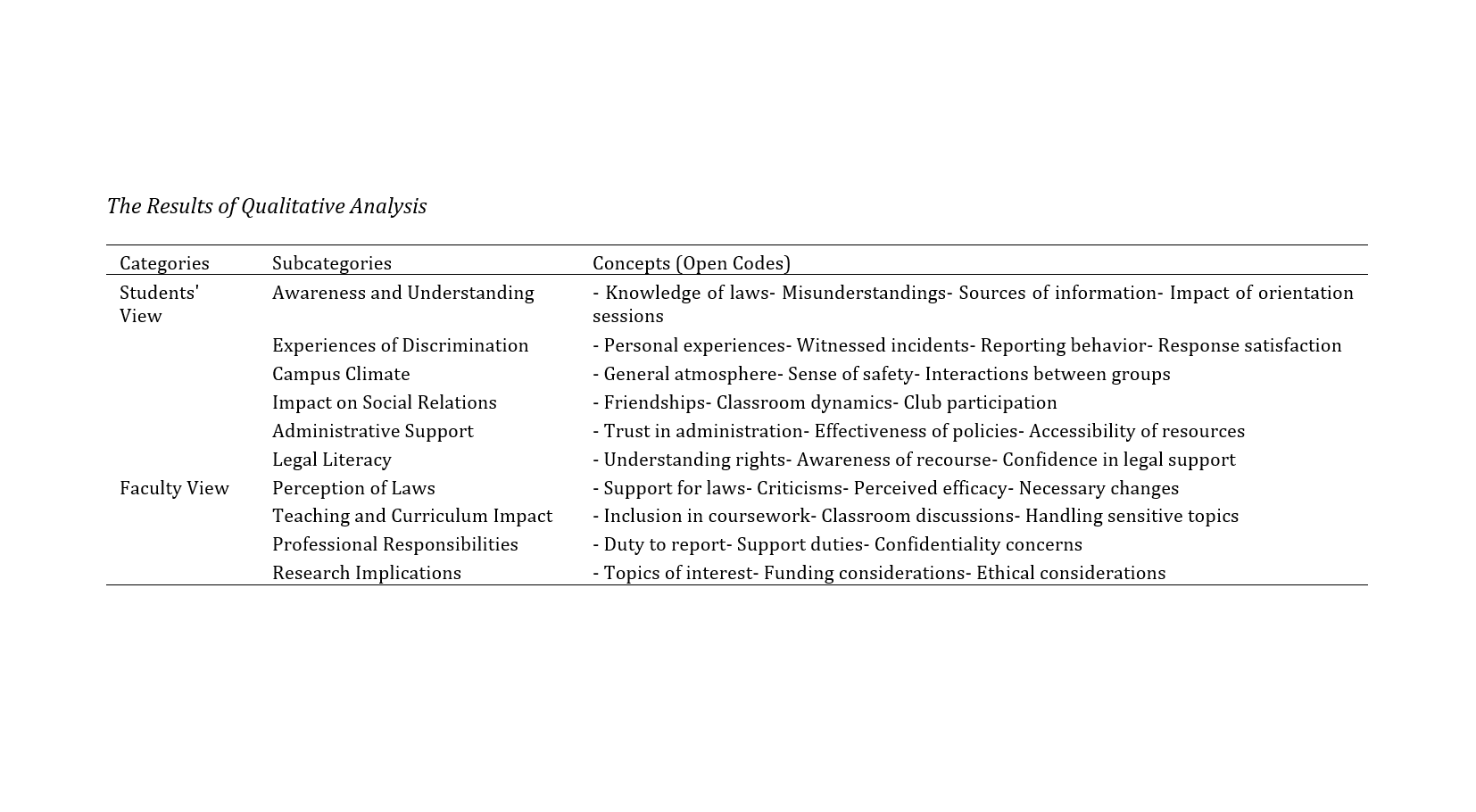Impact of Anti-Discrimination Laws on University Campuses: Student and Faculty Views
Keywords:
Anti-discrimination laws, university campuses, qualitative research, campus climate, student perceptions, faculty perceptionsAbstract
The implementation of anti-discrimination laws on university campuses is crucial for fostering an inclusive academic environment. However, the effectiveness and impact of these laws are often debated. This study aimed to explore the perceptions of students and faculty regarding the influence of anti-discrimination laws on university culture and individual experiences, aiming to understand how these laws shape the campus climate and interpersonal relationships. This qualitative study utilized semi-structured interviews with a total of 22 participants, comprising 12 students and 10 faculty members from a university. The interviews were designed to achieve theoretical saturation and were transcribed and analyzed using NVivo software to identify recurring themes and patterns under two primary themes: "Students' View" and "Faculty View." The analysis revealed several key categories under each main theme. For students, the categories included Awareness and Understanding, Experiences of Discrimination, Campus Climate, Impact on Social Relations, Administrative Support, and Legal Literacy. Faculty categories encompassed Perception of Laws, Teaching and Curriculum Impact, Professional Responsibilities, and Research Implications. Each category provided insights into the complex interactions between policy implementation and campus experiences, highlighting both successes and areas needing enhancement. The study concludes that while anti-discrimination laws have facilitated some positive changes in campus culture, significant challenges remain in fully realizing their potential. The effectiveness of these laws is intricately linked to the administration's proactive engagement and the community's overall commitment to fostering an inclusive environment. Recommendations are made for universities to enhance policy transparency, increase legal literacy, and improve administrative responsiveness to discrimination reports.
Downloads






